Curiosa and curiosa
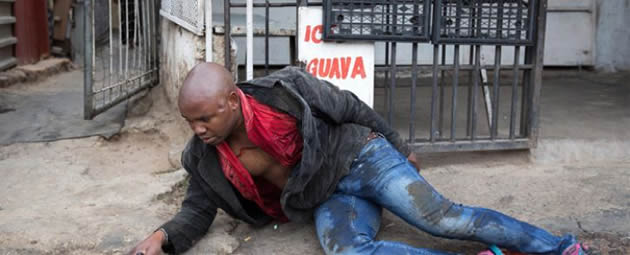
Perspective Stephen Mpofu
In a pub far, far away at one extremity of mother earth two imbibers, both a little inebriated, take long respites from frothing half-full mugs of a popular, local brew to discuss stories going viral on social media about developments somewhere in a village thousands of kilometres away from home.“Those people must be criminals to have to be hustled away by train from one section of the village escorted by over 100 police officers and other government agents,” says interlocutor A.
“From the look of things,” cut in interlocutor B, “those people must be voracious eaters and are probably being deported in fear that they might gobble up all the food and leave the inhabitants of that part of the village starving to death. It also appears as though the deportees have extraordinarily large nostrils that suck in too much oxygen, thereby depriving locals of that important life giving substance, while polluting the atmosphere with the oxygen those big noses breathe out.”
A little pause and interlocutor B continues: “Come to think of it, man, you mention village but social media report that people being given short shrift come from a country to the north of what is described in the stories as a development community. So I don’t understand what you mean by saying those people are being sent to a village to the north.”
Interlocutor A laughs, rather mockingly. “But, my man, is not a development community, such as the one being mentioned, a conglomeration of countries that share a common economic destiny?”
“If as you suggest, those villages or countries share the same goal of emancipating themselves to a higher economic level, does that not also suggest that they must share skills to achieve parity in their economic development?”
“You’re dead right,” responds the other interlocutor who then takes a long swig from the mug which he downs, wiping off the froth from his mouth with the back of his hand.
“I guess the government chucking out those thousands of hapless immigrants to their homes in the north now wishes that, poor as its country is, It shouldn’t have acted big by forking out US$10 million to Fifa reportedly for the development of soccer in the Caribbean when their own people have little or no chance at all of watching their money at play at soccer pitches thousands of kilometres away from home.
“I’m sure the government now regrets having acted like a good Samaritan and wishes that it had used that money to erect a tall durawall with razor wire and tower lights burning both by day and by night along its entire border with villages to the north and to the east to thwart any foreigner trying to sneak into their country to disadvantage its own people of food and oxygen. Such a security wall or the deportations reported by the social media, don’t seem, in my view, to augur well for good neighbourliness, especially since those people tell the world they wish to work as a team in developing their economies to improve the standards of living of their peoples.”
“My mind boggles,” says interlocutor B, “and I wonder if the leaders in that development community look each other in the eye when meeting to plan for the welfare of their people in the wake of the contradictions you just mentioned.”
“And you know, my man, there’s something rather curious about the people in that northern village the social media are especially writing about.”
“What do you mean, ‘curious’?”, said the other.
“They’re being harassed by authorities when travelling to another village next door. They’re stopped for inordinately long periods at the border and are subjected to inquisitions as though they carry mountains of money and the authorities fear that these people will wipe out food, clothing and other necessities and leave their people impoverished and starving. For how else can one explain a situation whereby shoppers bringing money to a country to improve its economy are subjected to a harassment that sounds like a statement telling the shoppers to stay away?”
“Now my mind also boggles,” says interlocutor A as both men lift their mugs, tilt their heads slightly back with their eyes shut and take assuaging long, long swills.
To some, the above conversation might sound like an imaginary interlocution bearing no resemblance to reality on the ground.
True, the duo may have exaggerated or, indeed, blown the stories on social media out of proportion. But whatever social media wrote and whatever the pair discussed was pegged on reality — the reality of hundreds of Zimbabweans rounded up in South Africa along with other immigrants from Malawi and Mozambique after recent xenophobic violence that left some people dead in that Sadc member-state.
Is it not ironic that Zimbabweans who were mostly hired to carry out civil works in South Africa in preparation for the World Cup held in that country in 2010 were deported in 2011 and continue to be booted out?
Of course, no country anywhere is expected to harbour undocumented immigrants and South Africa is no exception. But to systematically round up foreigners upon whom violence is unleashed by South Africans and then load them up on buses and on the train accompanied by police and immigration officers and dump them on our border with that country no doubt evokes serious questions in the minds of many.
This is particularly so since Pakistanis, Nigerians and other foreigners from far away countries who were also victims of xenophobia were not sent away to their native countries because it is too expensive to deport them by air.
Is it because it costs about US$45, so it is said, to deport a Zimbabwean from South Africa by road or rail and perhaps the same or nearly the same amount to deport a Malawian or Mozambican?
We have not heard of any deportation of foreigners from Swaziland or Lesotho or Botswana or Namibia.
It is known that nationals from those countries are also found in South Africa, so why have they remained untouchable, or have they also been affected and there has been a conspiracy of silence to cover up their deportations?
When the Boers were in power in South Africa and their racist laws made life impossible for the blacks there, the victims of apartheid fled to the north and to the east and from there waged an armed struggle supported by their host countries and by the Organisation of African Unity, now the African Union, until they liberated their country.
Sadly enough, however, the generality of South Africans appear drunk on their new found freedom and blinded about where they received support to win back their land.
It is said, history repeats itself, although it might do so in ways totally different from the original scenario. That being the case, and with water abutting that country, one really wonders where South Africans will seek refuge should the worst come to the worst some day in that country.
Zimbabweans are apparently so conspicuous in South Africa by their industry and the languages they speak for them to become easy targets; yet even though thousands of them cross the borders to South Africa regularly most of them go there for shopping and just a few melt away into that country.
Zimbabweans also carry a lot of money which ordinary South Africans do not possess, witness highway robbers who have struck buses carrying travellers to that country and got away with huge sums of money meant for shopping, cellphones and other valuables belonging to passengers.
Now, Zimbabweans deported and others going there on shopping sprees will no doubt have realised that south, west, north, east, home is best.
As such they should work hard to improve their lot under the warmth and support of their fellow citizens.
This pen hopes that the government might wish to consider resettling some of the deportees on parts of the farms now being sub-divided, perhaps as cooperatives with seeds and fertilisers and tillage being provided initially to help the people in question.
If the government does not help the deportees begin a better new life at home, some of those people might head to cities and aggravate the congestion there by swelling up the numbers of street vendors at a time that the government has issued an order for the informal traders to clear off the streets and shop pavements for reasons of health and cleanliness by going to new, designated vending sights allocated by local authorities.
Formalising this sector will provide a lasting solution to the problem of rendering streets dirty and unsightly.
It is also to be hoped that children of school going age caught up in the deportations will be assisted in finding places in Zimbabwean schools to acquire education for a better future for both themselves and their country.
Among the deportees were ex-convicts who had served their jail terms for various crimes in South Africa.
If these former criminals are not monitored, they will melt into Zimbabwean society and probably resort to what they know best as a source of their livelihood — crime.
Tabs must be kept on these people so that they do not resume their criminal activity on Zimbabwean soil.
Above all, Zimbabweans must seriously ask themselves whether it is worth their while jumping the border into South Africa and staying there undocumented.
Among the recent deportees were overstayers who should always be mindful of abiding by the laws of their host countries.


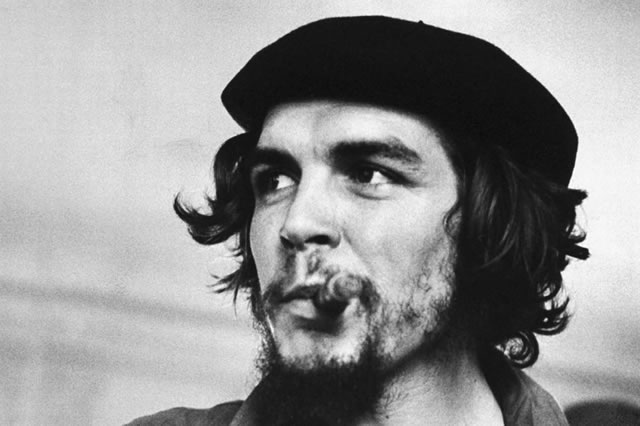
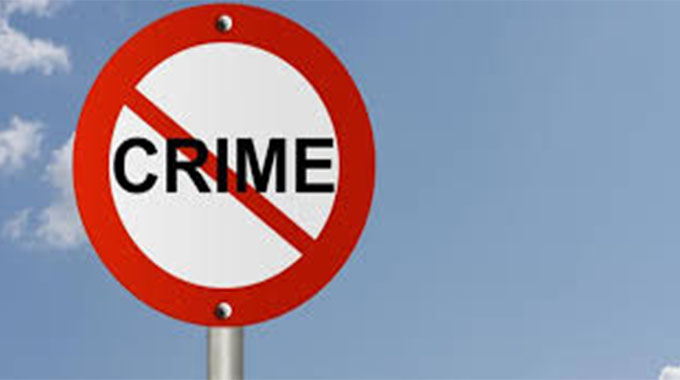
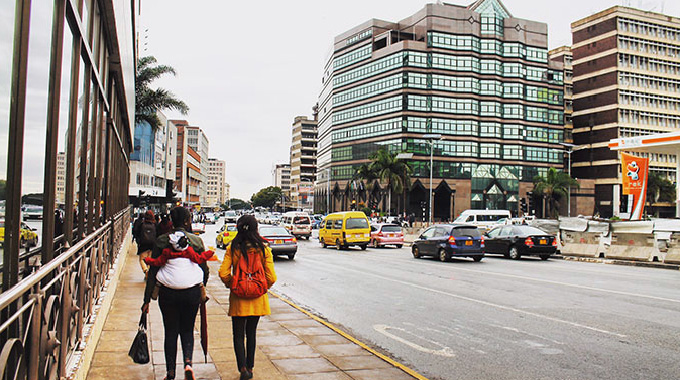
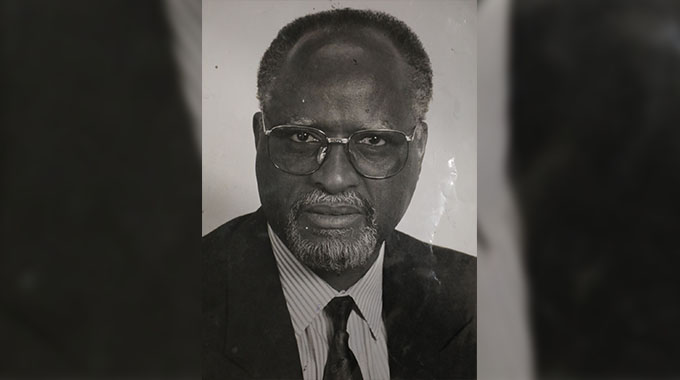




Comments